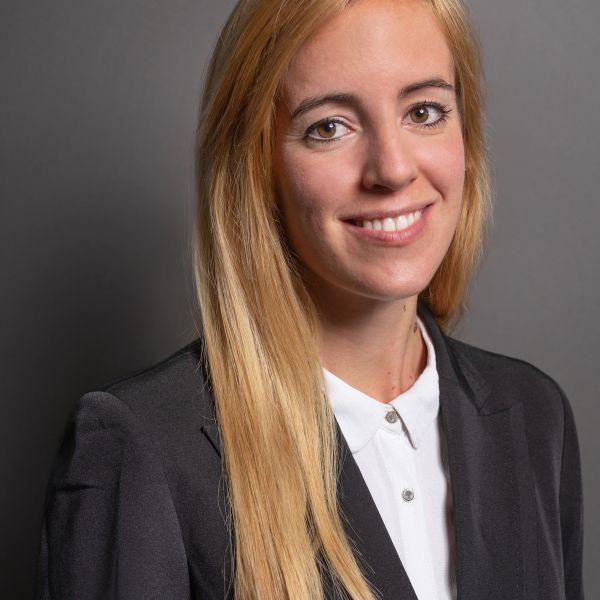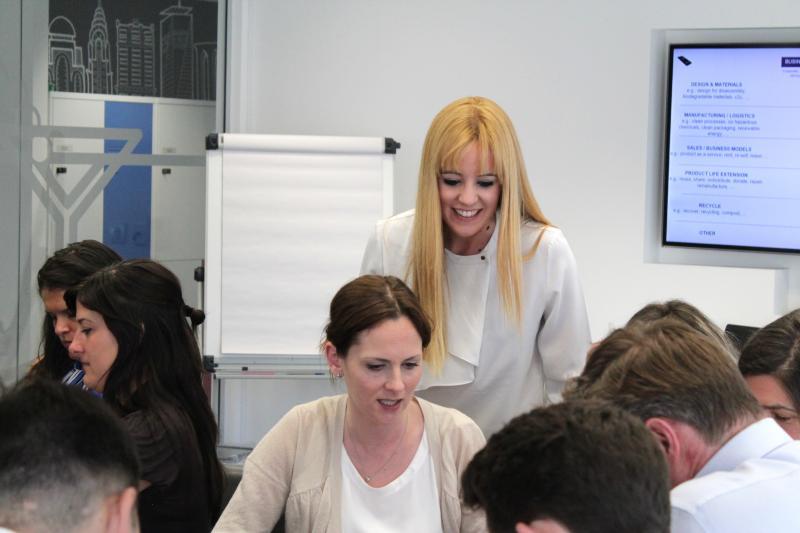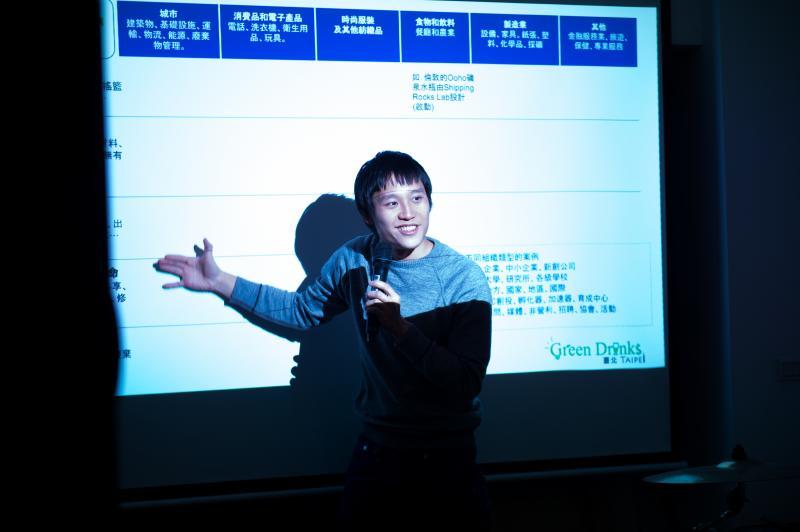Image

-
Anna Tari
Founder and CEO, Circular Economy Club (CEC)
- 30 Under 30
- 2019
- Changemaker Grantee
Boston, MA, United States / Spain
2020 EE 30 Under 30 Changemaker Grant Project
Circular Cities Week 2020
The Circular Economy Club (CEC) will host its second annual Circular Cities Week in October 2020 across 140 cities with the objectives of 1) educating citizens about the circular economy model and how to build a circular city that promotes economic development, social inclusion and ends with the concept of waste and environmental impact; and 2) creating an open-source report of challenges, opportunities, and next steps for all participating cities that city officials can use to pursue local circular strategies. The condensed time frame of "Circular Cities Week" encourages a sense of urgency and purpose designed to help stakeholders learn about the circular economy model and identify opportunities, challenges, and next steps for supporting circularity at the city level.
**********
EE 30 Under 30 Biography
Anna founded the Circular Economy Club, a vast international network of professionals and educators working to adopt the circular economy in cities and universities worldwide.
Tell us about yourself!
I am the Founder and CEO of the Circular Economy Club (CEC), the largest international hub in the circular economy field with over 4,000 members and 240 CEC local organizers who bring the club to their cities worldwide. I am also a PhD Marketing Student at the Questrom School of Business at Boston University, where I am researching the role of the consumer within a circular economy model. For this work, I received a Fellowship from LaCaixa Foundation, which was handed by the King of Spain.
As recognition for my role in bolstering the circular economy movement internationally, I received the Ibero-American Youth Award in 2018, which was given by the Prime Minister of Spain. I was also a Finalist for the United Nations Champions of the Earth, the United Nations SDG Awards in 2018, the Global Game Changers 2018 and the 2018 edie Sustainability Leaders Awards. Previously, I was the Government & Industry Affairs Coordinator at the World Travel & Tourism Council (WTTC) in London, and worked at the Communications and Publications Department of the United Nations World Tourism Organization (UNWTO) in Madrid. Both organizations are the leading institutions propelling environmental and social sustainability in the tourism sector.

What inspired you to become a champion for environmental education?
In 2012, I was in a research group at the University of Alicante in Spain where I learned about the concept of the “circular economy.” The circular economy is an alternative to the linear economy in which we live in, where we currently take resources, produce, consume, and waste. The circular economy model posits that all materials should go back into the cycle, avoiding leakages that damage the environment, through donating, reselling, and recycling.
When I found out about the circular economy model, it was clear to me that this was a model that was supporting both environmental protection and economic growth. It was then that I finally had the knowledge of an economic model that could convince both companies and consumers to embrace fully sustainable practices.
I started the CEC as an online resource for everyone to learn about the circular economy model, which grew to become the non-profit that it is now. I started to give seminars and talks about circularity, and I am now completing my doctoral studies on this topic
What advice would you give to the next generation of leaders that are looking to bring about positive change in their communities through EE?
To believe in the powerful tool of “decentralization.” A movement is decentralized by nature. What I learned, is that if you want to instill positive environmental change in the world, you can do it successfully if you generate a decentralized movement. The centralized organizations of the past, where all team members have to be selected by the same core team, and where all resources come from the same body, are a bottle-neck if their aim is bringing about positive change in communities.
A more effective way is decentralizing the organization so that small teams worldwide can join your mission and make it grow in their own locations. At the CEC, we started by doing events and workshops in London with a core team of three people. We launched the CEC Organizers program which allows anyone to voluntarily open up a CEC chapter in their city, and in only 2 years we have grown to having 240 CEC chapters worldwide with active teams and workshops propelling change in hundreds of cities and educational institutions.
Opening up your brand and organization to others can help your vision expand worldwide. You will use your resources much more efficiently, and you will be motivated by those active and professional supporters worldwide.

What keeps you motivated, inspired, or hopeful for the future?
What fuels my motivation is being surrounded by other people who are looking for the same change in our educational institutions and the world in general. The circular economy community is a group of people that is eager to share their vision with anyone and is capable of convincing others through an environmental, but also an economic, list of arguments.
I am most motivated when I start a project with a team that I can see going beyond what we’ve done so far. I am also motivated when we do global events – decentralized events that takes place in multiple cities at the same time. This year, for example, CEC will celebrate its inaugural "Circular Cities Week" global event (Oct. 28-Nov. 3, 2019). The goal is to push, with a united voice, for the design and implementation of circular economy strategies in cities worldwide. During this week, CEC City Organizers in more than 100 cities will organize workshops to identify opportunities and next steps to encourage implementation of the circular economy in their cities. This process will include bringing in stakeholders from city governments, private and nonprofit sectors, and academia—and providing a multi-stakeholder call to action. This effort will coincide with the United Nations World Cities Day on Oct. 31.
What pro-environmental behavior do you think would make a big impact if everyone in the world started doing it?
Stop using packaging. If we all decided to only use reusable products and stop using disposable packaging, we would be able to cut out waste and the CO2 emissions generated from producing disposable materials (most of which are plastic).